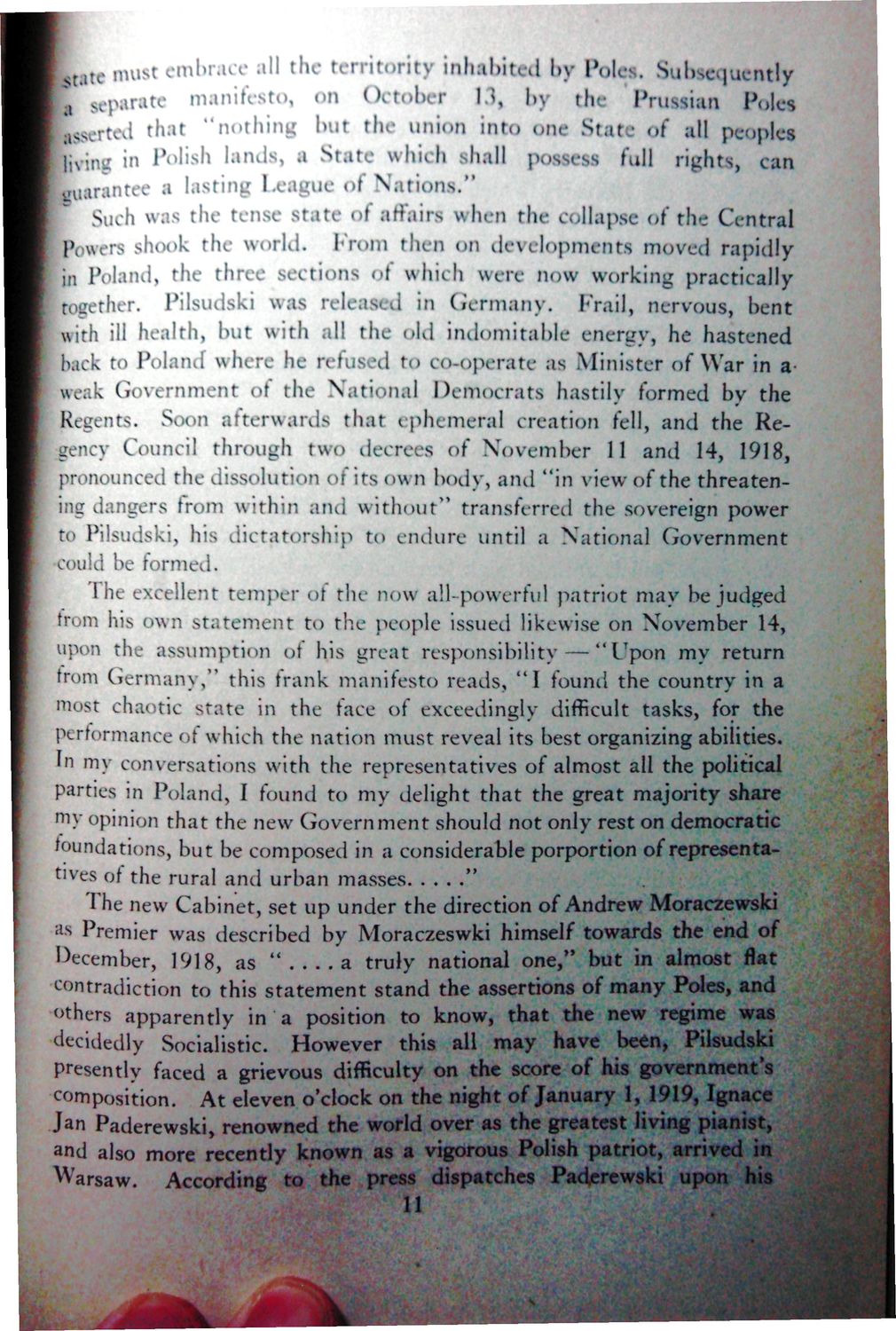| |
| |
Caption: War Publications - WWI Compilation 1923 - Article 24
This is a reduced-resolution page image for fast online browsing.

EXTRACTED TEXT FROM PAGE:
s tttenuist r embrace all the tcrritority inhabit, d |»y Poles. Subsequently separate manifesto, on October 13, by the 'Prussian Poles .1 asserted that "nothing but the union int., one Stat • .if all peoples living in Polish lands, * State which shall possess full rights, can misrantee a lasting League of Nations." Such was the tense state of affairs when the collapse of the Central Powers shook the world. I a-, .in fiien on ile\elopmenrs moved rapidly in Poland, the three sections of which were now working practically together. Pilsudski was released in Germany. Frail, nervous, bent with ill h ilth, but with all the old indomitable energy, he hastened hack to Polan . where he refused to co-operate as Minister of War in a u eak Government of the National Democrats hastily formed bv the Regents. Soon afterwards that ephemeral creation fell, and the Regency Council through two decrees of November 11 and 14, 1918, pronounced the dissolution of its own body, and "in view of the threatening dangers from within ami without" transferred the sovereign power to Pilsudski, his dictatorship to endure until a National Government could be formed. I he excellent temper of the now all-powerful patriot may be judged from his own statement to the people issued likewise on November 14, T upon the assumption of his great responsibility — *'L pon my return from German)," this frank manifesto reads, " I found the country in a most chaotic state in the face of exceedingly difficult tasks, for the performance of which the nation must reveal its best organizing abilities. In m _ _ _ • — _^ pol parties in Poland, I found to my delight that the great majority share democratic representafcves of the rural and urban masses Th Moraczewski towards December, 1918, as " a truly national one," but in almost flat contradiction to this statement stand the assertions of many Poles, and others apparently in a position to know, that the new regime was decidedly Socialistic. However this all may have been, Pilsudski presently faced a grievous difficulty on the score of his government's composition. At eleven o'clock on the night of January 1, 1919, Ignace Jan Paderewski, renowned the world over as the greatest living pianist, and also more recently known as a vigorous Polish patriot, arrived in Warsaw. According to the press dispatches Paderewski upon his 11 y>
| |